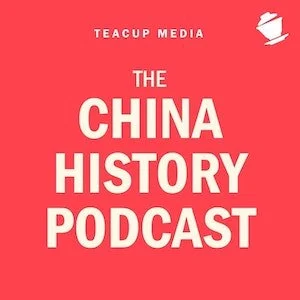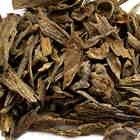Ep. 290 | The History of Hainan (Part 1)
Laszlo welcomes California State University professor Dr. Jeremy Murray onto the CHP to help introduce the history of Hainan. In this Part 1 episode, they discuss the Hainan history timeline up to the end of the Ming Dynasty.
Listen On Your Favorite Podcast Player
Terms in Episode
| Pinyin/Term | Chinese | English/Meaning |
|---|---|---|
| Hǎinán | 海南 | Island province off the coast of Guangdong |
| Sānyà | 三亚 | Historic resort city at the southern tip of Hainan |
| Hǎitáng Bay | 海棠湾 | One of the bays around Sanya with a few nice resorts |
| Chūnjiè | 春节 | The Spring Festival, a.k.a. Chinese New Year |
| Bó'áo Forum | 博鳌亚洲论坛 | The Bo'ao Forum of Asia, a non-profit organisation that hosts high-level forums for leaders from government, business and academia in Asia and other continents to share their vision on the most pressing issues in this dynamic region and the world at large. |
| Tiān Gāo Huángdì Yuǎn | 天高皇帝远 | Refers to remote places where law and decrees are not strictly enforced. Literally The sky is high and the emperor is far away |
| Qióng | 琼 | fine jade |
| Zhūyá | 珠崖 | The historic name of Hainan Island |
| Qióngyá | 琼崖 | Another historic name of Hainan Island |
| Qióngzhōu | 琼州 | Yet another historic name of Hainan Island |
| Tiānyá Hǎijiǎo | 天涯海角 | the ends of the earth; remotest corners of the earth |
| Shāng | 商 | The Shang Dynasty 1600-1046 BC |
| Zhōu | 周 | The Zhou Dynasty 1046-221 BC |
| Qín | 秦 | The Qin Dynasty 221-207 BC |
| Xià | 夏 | The mythical Xia Dynasty 2070-1600 BC |
| Hàn | 汉 | The Han Dynasty 206 BC to 220 AD |
| Lí Zú | 黎族 | The Li ethnic group (who inhabit parts of Guangdong and Hainan),also referred to as the Hlai people |
| Miáo Zú | 苗族 | Also known as ther Hmong, an ethnic group in southwest China (Guizhou, Hunan, Yunnan, Sichuan, Guangdong, Guangxi and Hainan as well as in Vietnam |
| Zhuàng Zú | 壮族 | The Zhuang ethnic group who are found mostly in Guangxi, Yunnan and Guangdong |
| Utstat / Utsul | 回辉人 | Also known as the Utset, Huihui, Hui or Hainan Cham. They are mostly found in southermost Hainan |
| Hàn Chinese | 汉族 | The largest ethnic group in China comprising more than 90-95% of the population |
| Shú | 熟 | ripe, cooked, done (cooking) |
| Shēng | 生 | (among many meanings) unripe, green (the opposite of shú 熟) |
| Pǔ'ěr | 普洱 | A kind of "fermented" tea that is made from a special process and only found in Yunnan Province but enjoyed all over the world |
| Kra Dai | 壯侗語系 | The Kra–Dai languages (also known as Tai–Kadai and Daic) are a language family of tonal languages found in Mainland Southeast Asia, Southern China and Northeast India. They include Thai and Lao, |
| Lú Bódé | 路博德 | Western Han general who attacked the island of Hainan and divided the new territory into the twin prefectures of Zhuya (珠崖郡) and Dan'er (儋耳郡) thus also annexing Hainan island into the Han empire. |
| Táng | 唐 | The Tang Dynasty 618-907 AD |
| Sòng | 宋 | The Song Dynasty 960-1279 |
| Suí | 随 | The Sui Dynasty 581-617 AD |
| Wǔ Gōng | 五公 | The Five Lords or Five Ministers (who were banished to Hainan) |
| Wǔ Gōng Cí | 五公祠 | The Temple of the Five Lords |
| Lǐ Déyù | 李德裕 | 787-850, Tang era chancellor during the reigns of Wenzong and Wuzong |
| Lǐ Gāng | 李纲 | 1083-1140, Song dynasty official and military leader at the time of the fall of the Northern Song |
| Lǐ Guāng | 李光 | 1078-1159, Song dynasty official once banished to Hainan |
| Zhào Dǐng | 赵鼎 | 1085-1147, Song dynasty official once banished to Hainan |
| Hú Quán | 胡铨 | 1102-1180, Song dyansty official once banished to Hainan |
| Táng Wénzōng | 唐文宗 | Tang Dynasty emperor who reigned 827-840 |
| Táng Wǔzōng | 唐武宗 | Tang Dynasty emperor who reigned 840-846 |
| Hǎikǒu | 海口 | Capital of Hainan Province, located in the north |
| Sū Shì | 苏轼 | 1037-1101, one of the all-time greats from Chinese literature. An official serving during the Northern Song |
| Sū Dōngpō | 苏东坡 | Another name for Su Shi (see above) |
| Zhāng Zhōng | 张中 | Military official in Hainan who allowed Su Shi to reside in the compound there |
| Dānzhōu | 儋州 | City oin northern Hainan where Su Shi lived during his time there. |
| Hǎi Ruì | 海瑞 | 1514-1587, Hainan-born honest and upright Ming Dynasty official |
| Wú Hán | 吴晗 | 1909-1969, China historian, official and playwrite |
| Hǎi Ruì Bàguān | 海瑞罢官 | The play, Hai Rui Dismissed From Office, written by Wu Han that was accused of being an allegory for the dismissal of Peng Dehuai by Chairman Mao |
| Qióngzhōu | 琼州 | a prefecture between the 7th and 14th centuries in modern Hainan, China |
| Jiājìng | 嘉靖帝 | Ming Dyansty emperor who reigned 1521-1567 |
| Míng | 明 | The Ming Dynasty 1368-1644 |
| Péng Déhuái | 彭德怀 | 1898-1974, great military leader and revolutionary of the PRC |
| gùxiāng | 故乡 | hometown, birthplace |
| Lú Shān | 庐山 | A famous holiday resort in Jiangxi where a few historic conferences took place |
| Lín Biāo | 林彪 | 1908-1971, PRC Defense MInister during the Cultural Revolution |
| Yuán | 元 | The Yuan Dynasty 1279-1368 |
| Léizhōu Peninsula | 雷州半岛 | The peninsula located on the southwest end of Guangdong province across from Hainan |
| Guǎngdōng | 广东 | Southern coast province of China |

















his all took place in the final moments of the Warlord Era, right after the Central Plains War. This act perpetrated by warlord Sun Dianying 孙殿英 epitomized the venality of these men.